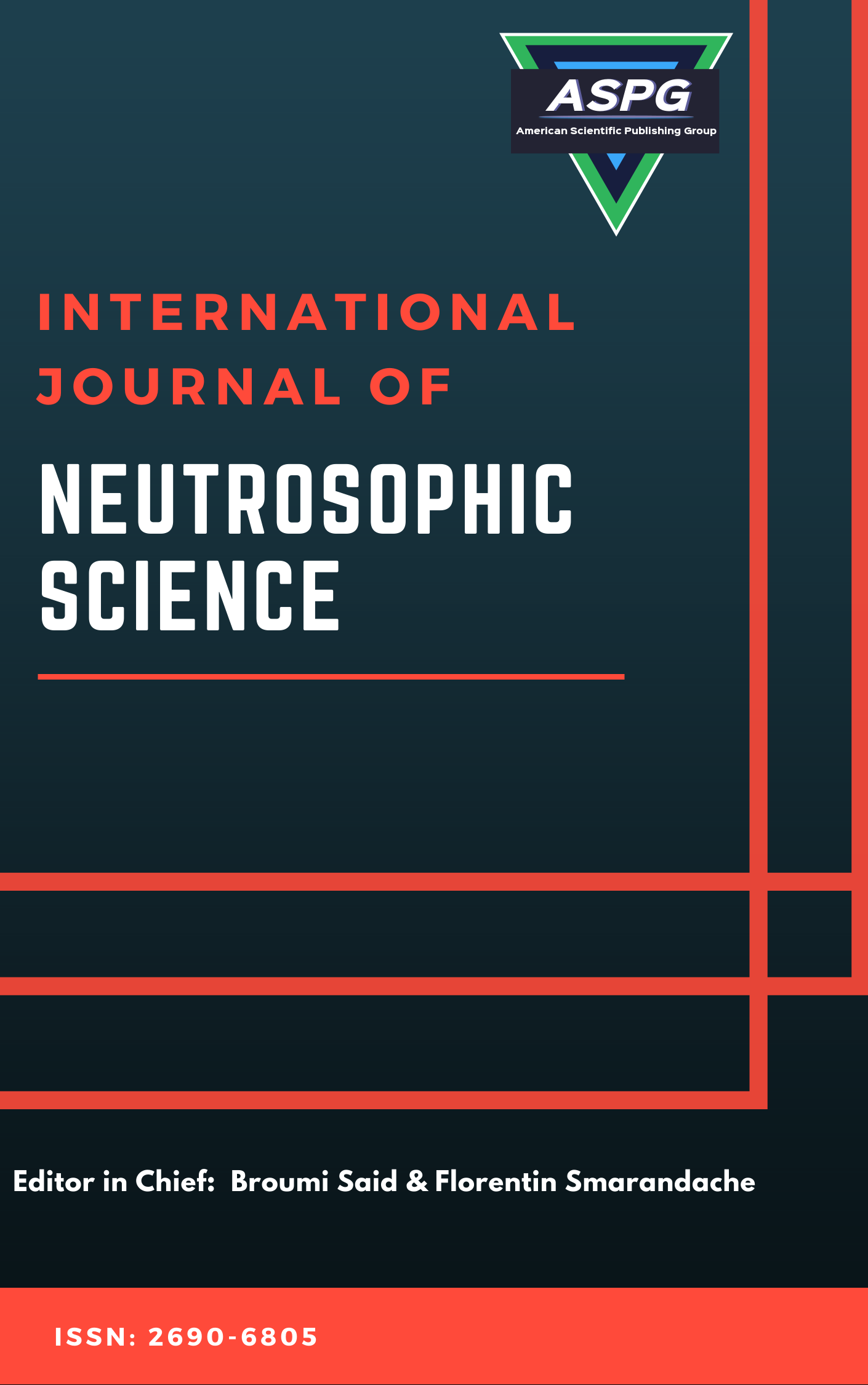

Volume 24 , Issue 1 , PP: 259-268, 2024 | Cite this article as | XML | Html | PDF | Full Length Article
Batista H. Noel 1 , Miranda C. Luis Rodrigo 2 , Santillan A. Julián Rodolfo 3 , Cuauhtemoc Samaniego 4 *
Doi: https://doi.org/10.54216/IJNS.240123
Legal security in property division is a crucial aspect within the field of civil and inheritance law. This process involves the equitable distribution of assets from an inheritance or marital community among heirs or co-owners, with the aim of guaranteeing their rights in a fair and transparent manner, in accordance with the law. This study focuses on examining various options to deepen understanding of the mechanisms that ensure legal security in this property division, with the goal of identifying best practices. To analyze each alternative in terms of scope and objective, the multicriteria decision-making methods OWA and TOPSIS were employed, using neutrosophic numbers as a modeling tool. The use of these methods highlights the challenges of legal inexperience and conflicts of interest, emphasizing the need for a precise and cautious approach. This analysis promotes the search for equitable solutions in property division, highlighting the importance of fair and transparent legal procedures.
OWA Method , legal certainty , civil law , heirs , Neutrosophic TOPSIS
[1] V. Çağdaş, A. Kara, A. Lisec, J. M. Paasch, J. Paulsson, T. L. Skovsgaard, et al., "Determination of the property boundary – A review of selected civil law jurisdictions," Land Use Policy, vol. 124, p. 106445, 2023/01/01/ 2023.
[2] M. Shouaib, A. Eldakak, and E. A. Alabdouli, "Effect of the civil law severability doctrine on administrative contract Theory: A study of French and Egyptian laws," Heliyon, vol. 10, p. e27995, 2024/03/30/ 2024.
[3] S. Chen, S. X. Ying, H. Wu, and J. You, "Carrying on the family's legacy: Male heirs and firm innovation," Journal of Corporate Finance, vol. 69, p. 101976, 2021/08/01/ 2021.
[4] M. Grassi, "A (Not Always) Difficult Balance between Legal Certainty and Legality: The Effects of cjeu and ECtHR Case Law on National Res Judicata," The Italian Review of International and Comparative Law, vol. 3, pp. 145-156, 2023/05/05/ 2023.
[5] M. Lin, W. Xu, Z. Lin, and R. Chen, "Determine OWA operator weights using kernel density estimation," Economic research-Ekonomska istraživanja, vol. 33, pp. 1441-1464, 2020.
[6] Y. Chen, K. W. Li, and S.-f. Liu, "An OWA-TOPSIS method for multiple criteria decision analysis," Expert Systems with Applications, vol. 38, pp. 5205-5211, 2011/05/01/ 2011.
[7] B. Huang, R. Zha, S. Chen, X. Zha, and X. Jiang, "Fuzzy evaluation of ecological vulnerability based on the SRP-SES method and analysis of multiple decision-making attitudes based on OWA operators: A case of Fujian Province, China," Ecological Indicators, vol. 153, p. 110432, 2023/09/01/ 2023.
[8] D. García-Zamora, A. Cruz, F. Neres, R. H. N. Santiago, A. F. Roldán López de Hierro, R. Paiva, et al., "Admissible OWA operators for fuzzy numbers," Fuzzy Sets and Systems, vol. 480, p. 108863, 2024/03/15/ 2024.
[9] P. Gulum, E. Ayyildiz, and A. Taskin Gumus, "A two level interval valued neutrosophic AHP integrated TOPSIS methodology for post-earthquake fire risk assessment: An application for Istanbul," International Journal of Disaster Risk Reduction, vol. 61, p. 102330, 2021/07/01/ 2021.
[10] M. Abdel-Basset, M. Saleh, A. Gamal, and F. Smarandache, "An approach of TOPSIS technique for developing supplier selection with group decision making under type-2 neutrosophic number," Applied Soft Computing, vol. 77, pp. 438-452, 2019/04/01/ 2019.
[11] X. Li, Y. Luo, H. Wang, J. Lin, and B. Deng, "Doctor selection based on aspect-based sentiment analysis and neutrosophic TOPSIS method," Engineering Applications of Artificial Intelligence, vol. 124, p. 106599, 2023/09/01/ 2023.
[12] L. T. H. Lan, D. T. T. Hien, N. T. Thong, F. Smarandache, and N. L. Giang, "An ANP-TOPSIS model for tourist destination choice problems under Temporal Neutrosophic environment," Applied Soft Computing, vol. 136, p. 110146, 2023/03/01/ 2023.
[13] K. L. Fernández-Rodríguez, G. Abad-Peña, M. T. Ortiz-Luzuriaga, Y. Ramos-López, G. E. Cevallos-Uve, E. E. Obaco-Soto, et al., "Neutrosophic model to measure the impact of management projects on the process of pedagogical-research training," Neutrosophic Sets and Systems, vol. 26, pp. 12-18, 2019.
[14] G. Robles Zambrano, C. M. Cajas Párraga, and J. F. Molina Mora, "Analysis of the forgery of legal documents in civil and criminal proceedings," Baltic Journal of Law & Politic, vol. 16, pp. 1331-1340, 2023.
[15] K. D. Ashley. (1992 )Case-Based Reasoning and its Implications for Legal Expert Systems. Artificial Intelligence and Law. 113-208.
[16] A. J. Hartig, "Conceptual blending in legal writing: Linking definitions to facts," English for Specific Purposes, vol. 42, pp. 66-75, 2016/04/01/ 2016.
[17] E. K. van Straalen, C. J. de Poot, M. Malsch, and H. Elffers, "The interpretation of forensic conclusions by professionals and students: Does experience matter?," Forensic Science International: Synergy, vol. 7, p. 100437, 2023/01/01/ 2023.